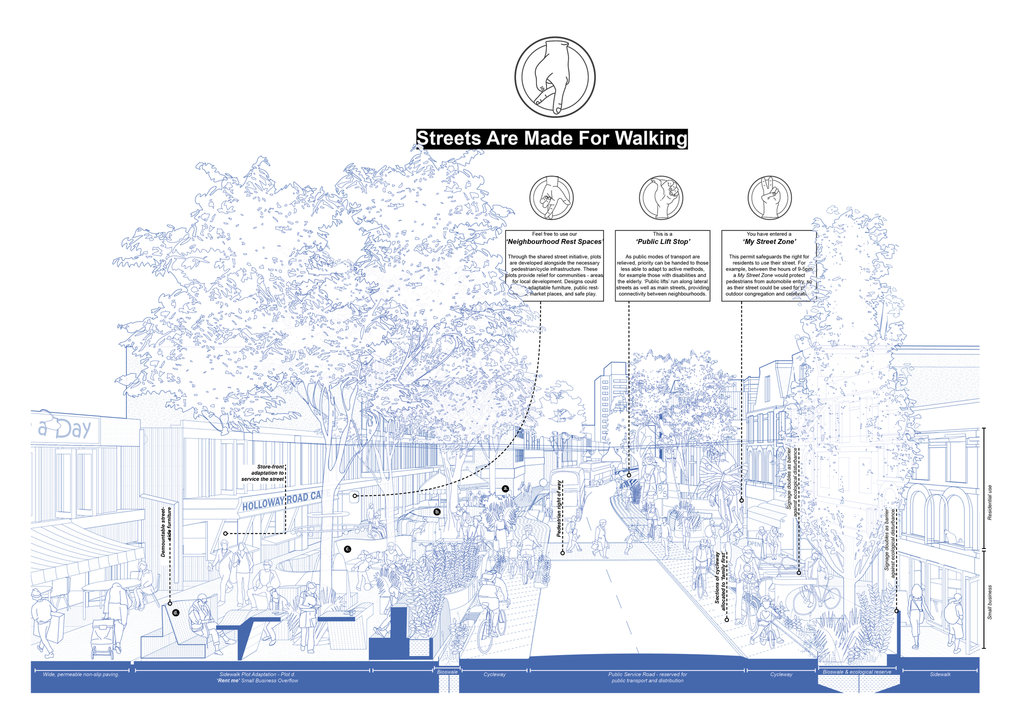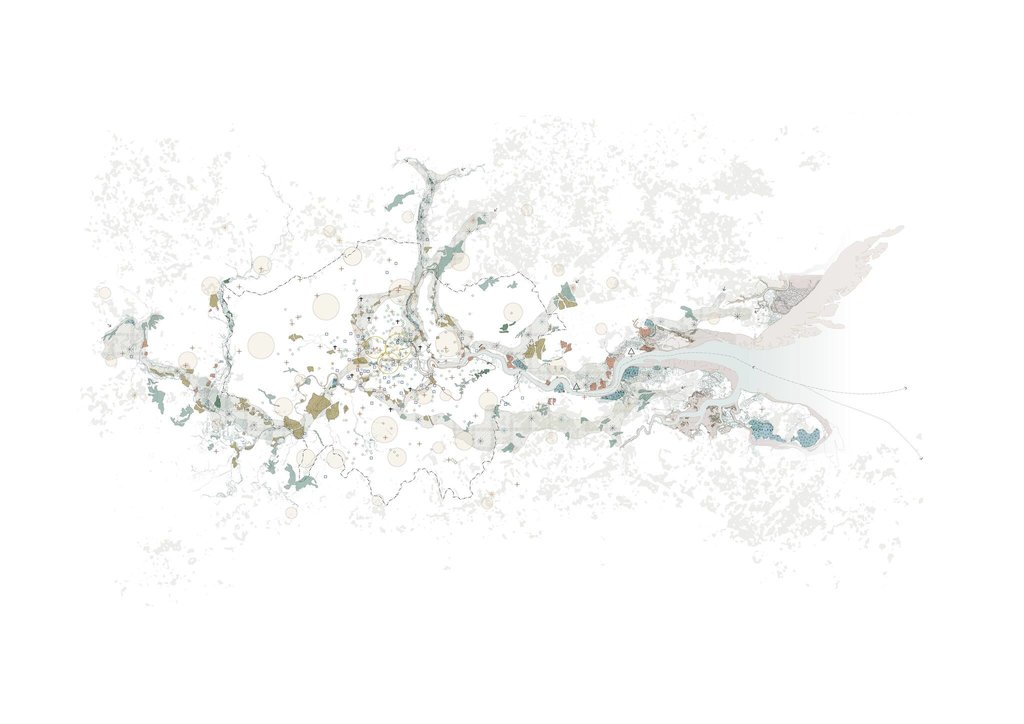
THE Royal Institute of British Architects (RIBA) has announced three joint winners of its Rethink: 2025 design competition.
The initiative invited architects and students to consider what life and our built environment could look like in a post-pandemic world.
Entrants were given seven categories from which to generate ideas. These were healthcare spaces; remote learning; high density living; public transport; high streets vs online shopping; international travel; and the use of technology to monitor and control populations.
The winning submissions were: Get Everyone In, by Benjamin Holland, Olivia Dolan and Katie Williams; Streets are Made for Walking by People Matter; and Greater London Agriculture, by Tim Rodber and Dominic Walker.
Judge Ed Clark, associate director at Arup said, “Evaluating the entries was an eye-opening process to appreciate the breadth and scale of the issues. We wanted to reflect that those issues are equally important at different scales and so awarded three equal first places.”
The Get Everyone In design plan drew on two issues which RIBA said have been ‘amplified’ by the pandemic – the need to house people are homeless and the prediction that many office spaces will become permanently redundant.
The submission brought these two possibilities together and suggested that empty office spaces could be re-used and repurposed to house homeless people. A proposed reworking of an office tower showed communal health facilities at ground level and sky gardens at mid level – as well as residents being able to grow their own food in vertical gardens. The plans also showed how a deep plan office floor could be used for hostel-style bedrooms around the perimeter with communal spaces in the centre of the floor.
The Streets are Made for Walking proposal focused on Holloway Road, which is an arterial road in North London. The applicant used the road as an example of what could be done in ‘any’ city to redesign its streets to make high quality public space for those living either side of such traffic corridors.

RIBA explained that Covid-19 has brought about different uses and treatments of streets, with the entry hopeful of a permanent move towards cleaner streets regularly used by those using active methods of transport – with the proposal looking to capitalise on these changes.
The submission shows plans for neighbourhoods to be linked in a series of lateral rings – with the idea being, that the radial roads out from the centre dimes the importance as the centre itself does, and the lateral connections increase in importance. RIBA said that with reduced amounts of commuting into city centres anticipated, this realignment becomes ‘feasible and desirable’.
Greater London Agriculture looks to transform London’s metropolitan area into an ecologically diverse agricultural landscape – addressing the premise that industrialised food production has made us vulnerable to diseases transmitted from animals to humans.

The project proposes to introduce sustainable farming that works with nature, known as agroecology, to growing spaces around London. Over time, these growing spaces would become connected by bio-diverse corridors – with the wetlands of Rainham Marshes becoming grazing spots for cattle, orchards producing cider and experimental seaweed farms floating in the estuary.
Commenting on all three winners, RIBA President Alan Jones, said, “It’s clear that many of the impacts of Covid-19 will be long-lasting and will continue to shape how we live for years to come. These winning proposals demonstrate the crucial role that architects can and must have in delivering places and spaces for communities of the future. Last year the RIBA declared a climate emergency, recognising the important role that the built environment will play in meeting the government’s target of net zero carbon by 2050 – I’m delighted to see that sustainability and community are at the very core of all three of the winning proposals – my congratulations to them all.”








